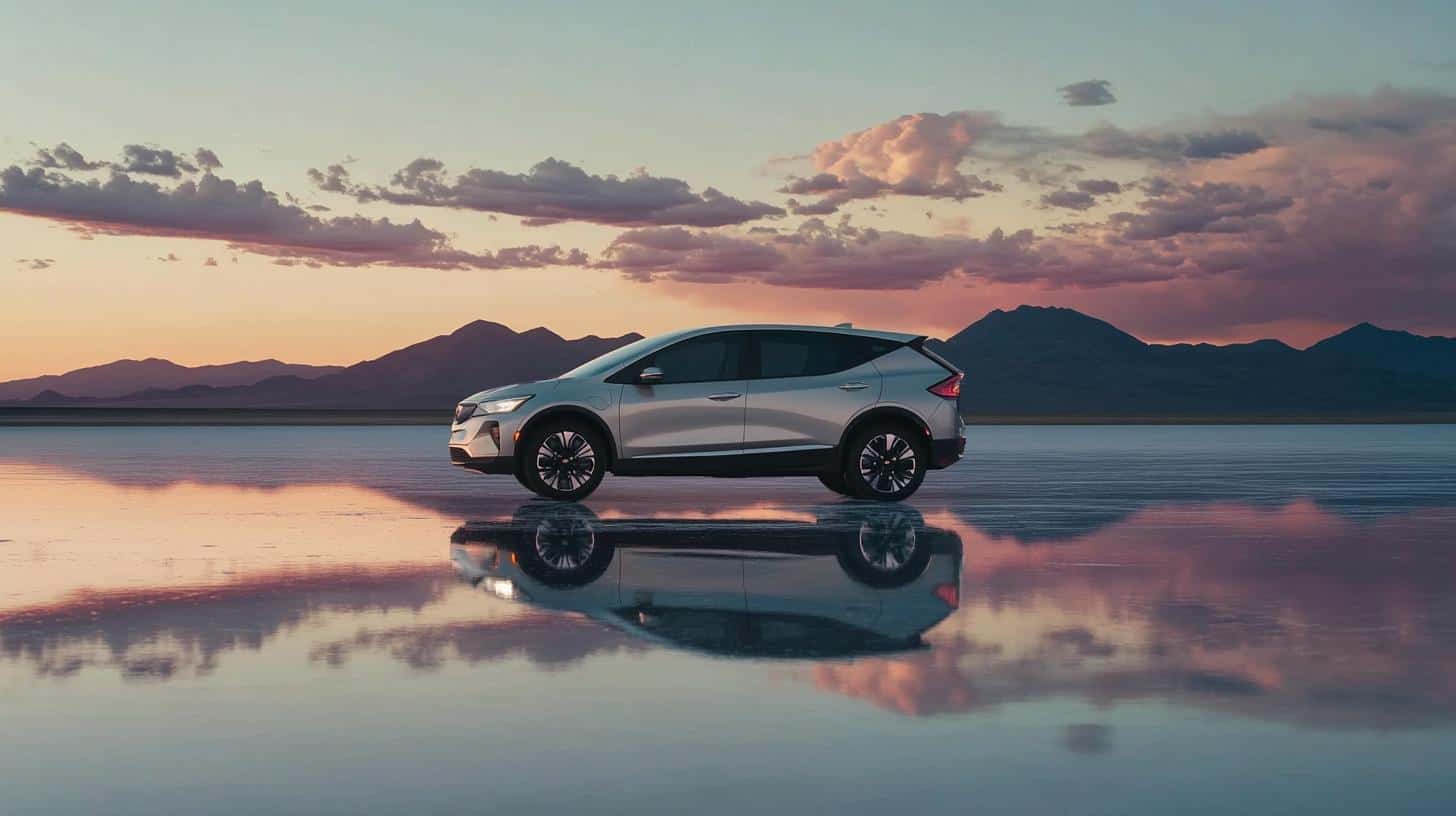DETROIT — General Motors (GM) has entered a significant partnership with Lithium Americas Corp. to develop a lithium mining operation in Nevada. As part of the agreement, GM will provide $625 million in cash and credit to support the project, focusing on the Thacker Pass lithium carbonate mining endeavor in Humboldt County.
This strategic collaboration is crucial for GM’s electric vehicle (EV) ambitions. Securing domestic lithium supplies is pivotal for the automaker to efficiently harness the battery components necessary for its all-electric fleet and adhere to federal regulations for EV production incentives.
GM highlights the importance of this venture, noting that obtaining key battery materials from U.S. sources will help control costs, offer value, and provide job opportunities. The mining operation at Thacker Pass plays a pivotal role in GM’s strategy to establish a reliable EV supply chain.
The market responded favorably to this announcement. Lithium Americas saw its shares rise over 20% in premarket trading, reaching approximately $3.25 per share. GM’s existing investments and interest in Lithium Americas have been further solidified by this collaboration, which grants GM a 38% stake in the Thacker Pass project.
The joint venture involves substantial investments, including a direct cash contribution and credit facilities to support the venture’s progress. GM and Lithium Americas have been refining their financial arrangements, taking steps to enhance their collective commitment to developing the lithium supply chain domestically.
This partnership builds on GM’s prior investment in Lithium Americas, affirming the automaker’s dedication to advancing its EV objectives through robust partnerships and resource management.
The Impact of Domestic Lithium Mining on Communities and Economies
The partnership between General Motors (GM) and Lithium Americas Corp. to develop a lithium mining operation in Nevada is a monumental shift that will undoubtedly affect the lives of people, communities, and countries. This collaboration underscores the increasing importance of securing domestic sources of essential resources, particularly as the world transitions to renewable energy and electric vehicles (EVs).
Economic Growth and Job Creation
For communities near the Thacker Pass mining site, this project signifies a potential economic boon. The influx of investment – GM’s $625 million contribution – is likely to spur job creation, not just in mining but across various sectors including construction, transportation, and services. This could lead to revitalized local economies as new businesses emerge to support mining operations and the employees involved.
Furthermore, establishing a domestic supply chain for lithium reduces dependency on international markets, keeping more of the economic benefits within the U.S. This could drive down costs for consumers and provide more stable pricing for EVs, aiding their adoption.
Environmental Concerns and Controversies
However, the project is not without its controversies. Mining operations of this scale raise significant environmental concerns. The Thacker Pass mining endeavor, in particular, faces scrutiny over its potential impact on local ecosystems and water resources. Environmental groups and local tribes have voiced their opposition, citing the risk of irreversible damage to the land and wildlife.
These concerns have catalyzed discussions on the need for sustainable and environmentally-friendly mining practices. Balancing the urgent demand for lithium with ecological preservation is a tightrope GM and Lithium Americas must walk. This partnership could set precedents for future mining operations, highlighting the importance of responsible resource extraction.
Strategic National Interest
At a national level, this partnership aligns with the strategic interests of the United States to fortify its supply chain independence. Lithium is a critical component in the production of EV batteries, and having a domestic source shields the supply chain from geopolitical risks and market fluctuations caused by events in lithium-rich foreign nations.
Additionally, by developing its own resources, the U.S. can enhance its competitive edge in the global race for EV supremacy. This move is not just about economic advantage; it has security implications, ensuring that the country is not left vulnerable to international supply chain disruptions.
A Boon for the Electric Vehicle Market
The impact on the electric vehicle market is significant. With a guaranteed domestic supply of lithium, GM can better control production costs and accelerate the transition to an all-electric fleet. This aligns with federal regulations offering incentives for EV production and purchases, making sustainable transportation more accessible to the average consumer.
In conclusion, the GM and Lithium Americas partnership is a multifaceted endeavor that carries broad implications for local communities, the environment, and national interests. As the world continues to shift towards sustainable energy solutions, collaborations like these serve as a blueprint for achieving ambitious EV goals while navigating the complexities of economic and environmental stewardship.
For more information, visit GM and Lithium Americas Corp..
The article has been updated. 2024-11-07 01:00
Here are some suggested related links:
1. Lithium Americas – Explore the official site of Lithium Americas, the company collaborating with GM on lithium projects, and learn more about their initiatives and developments in lithium production.
2. General Motors – Visit the official website of General Motors to understand their latest automotive innovations and sustainability efforts, including partnerships in the electric vehicle space.
3. Environmental Working Group – Stay informed with the Environmental Working Group, which provides insights into environmental issues related to lithium mining and energy sustainability.
4. Bloomberg – Check Bloomberg for the latest financial news and analysis on the automotive and lithium industries, focusing on trends and developments affecting major companies like GM and Lithium Americas.
5. Forbes – Read articles on Forbes for in-depth coverage and business analysis regarding the electric vehicle market and the importance of lithium supply chains.
6. Reuters – Access Reuters for breaking news and updates on industry partnerships, focusing on the advancements in electric vehicle technologies and lithium sourcing.
7. MarketWatch – Keep up with stock market news and trends surrounding companies like GM and lithium producers, helping you understand the economic implications of such partnerships.
8. ScienceDirect – Explore academic articles and research papers that delve into lithium extraction, environmental impacts, and sustainable mining practices related to lithium projects.
The article has been updated: 2024-11-07 15:48
What are the key goals of GM’s partnership with Lithium Americas in their major lithium project?
GM’s partnership with Lithium Americas aims to secure a stable supply of lithium, which is essential for the production of electric vehicle batteries. By collaborating on this major lithium project, GM seeks to enhance its supply chain resilience and reduce dependency on foreign lithium sources. The project will help GM meet its ambitious electric vehicle production goals while supporting the growth of sustainable energy solutions. Additionally, this partnership aligns with GM’s broader strategy to increase the adoption of electric vehicles and contribute to a greener future.







